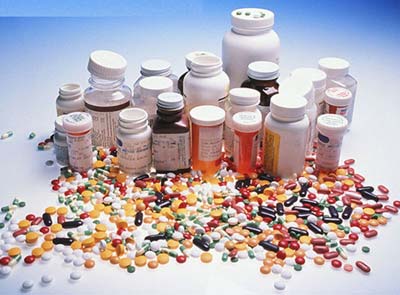It all starts with small gifts like pen and notepad. But it doesn’t stop there. High end gadgets, expensive cars, foreign holidays are new baits that pharma companies use to lure doctors into the nexus. Bilal Handoo reports the disturbing trend which prompts pharma companies and doctors to take their patients for a ride.
In the summer of 2006, a leading pharmaceutical company of India signed a closed door deal with a reputed doctor of the Valley in his rush pouring clinic in Srinagar. The deal was lucrative one. For prescribing medicines of the company for a year, medico was offered a Santro car, besides some other incentives.
The deal was purely meant to keep the sales counter of company ticking in the surging drug market of the Valley. The bonhomie between doctor and company lasted till the popularity of doctor remained intact. Suddenly all gifts and incentives were stopped, as growing complaints against the doctor became talk of the town. In between, pharma company found an alternative and roped in another medico to maintain its ‘booty’ in the market.
But the trouble for the doctor, who used to be pen-pusher for company’s drugs, was far from over. One fine morning while driving his Santo car to his clinic, he was stopped by the loan-recovery squad of bank. They showed him notice that declared him insolvent and drove his car away. It took him a while to comprehend that company has stopped to pay his monthly installments. The car was financed by the pharma company for the doctor. The shocked doctor could not say a thing and walked the remaining distance in utter disblief.
The said doctor is not the only person involved in ghost writing to promote pharma products in Kashmir. Analysts estimate that drug-makers spend nearly five percent of their revenues on expensive gifts from LCD TVs to overseas vacations on doctors in exchange for their drugs being prescribed.
“This doesn’t stop there only,” says Imtiyaz Ahmad, a Srinagar based medical representative (MR). “The drug-makers take care of things like bill payments, taking care of children’s school admissions for doctors and other things.”
‘Drugged’ Valley
Kashmir’s healthcare market is dominated by hundreds of independent doctors who run small clinics. Even those doctors who are associated with hospitals have their own clinics. The huge drug market, estimated to be worth crores of rupees, is what drug-makers are fighting over, and they need the doctors on their side.
To get control over the local market, the pharma companies spent huge budget on freebies. According to one estimate, the top 20 drug-makers in India spend about $600 million a year on freebies for doctors.
“Currently, the United States Food and Drug Administration (FDA) norms have banned gifts of substantial value to doctors,” says area manager of one pharma company in Kashmir. “However, the FDA allows companies to spend on free dinners and drug samples, and promotional merchandise such as pens and prescription pads with embossed company logos.”
Doctors often refuse to write prescriptions unless they are offered at least Rs 50,000 in cash every time a new drug needs to be prescribed, says a prominent MR of the Valley, who preferred not to be named. “Gifts for doctors include a foreign trip, a car at the doctor’s disposal, a wall-mounted TV or the latest model of refrigerator, goodies like pens and gift vouchers,” he says.
Some years ago, the gifting scheme of a certain company had set tongues wagging in the industry. As pharma companies gifted cars to doctors, the condition was set that they would prescribe its drugs to patients.
The vehicles would be used only by the doctors, but the pharma company would be paying the monthly installments to cover their cost. The company threatened to stop payments if the doctors did not prescribe its drugs.
“Due to incentives, some doctors start over-prescribing to achieve the targets and the stockiest goes out of his way to sell the products.” says Dr Mubashir Khan, a Srinagar based doctor. “This ultimately affects the customers in terms of high costs and overdosing.”
The nexus isn’t confined to urban clinics only, rather it is a deep-rooted one. In districts other than Srinagar, the doctors and chemists are even more closely interlinked, says Dr Khan, “By offering incentives to them, the companies are trying to capture the market. All the money which a pharma company invests in buying gifts or offering incentives is ultimately recovered from the customer.”
The value of the freebies climbs up when the potential of the doctor is high in promoting the drugs or in prescribing investigations at the diagnostic laboratories, says Asif Bhat, a Srinagar based medical representative.
“There has also been an instance where a drug company has set up a home theatre for a doctor,” Bhat claims. “A plasma television or a car, for which monthly installments are paid by the pharmaceutical company are common these days.”
However, it is a fact that not all medical practitioners take the gifts distributed by pharma companies. A general medical practitioner in the city outskirts says the freebies given to doctors are many and at many levels. “Not more than 10 per cent of medicos in the state accept gifts, so it’s wrong to malign the entire fraternity,” he says.
But one former hospital administrator says that it is more difficult to manage doctors than a hospital. The doctors are not happy if the hospital decides to have its own drug policy and insist on having their meetings with medical representatives, he says.
Drug Salesperson
Sameer Hassan was 25 when he was hired by a big pharmaceutical company as a medical representative in 2006. After 60 days of training in Noida, his sales target was fixed at Rs 45 lakh (Rs 4.5 million) for the year. He visited several chemists in the area assigned him to find out who the popular doctors were and what medicines they were prescribing. Soon he had a list of 300 doctors with high “prescription potential” and started calling on them.
As flattery is an indispensable tool of a medical representative’s trade, Hassan straightaway received “subtle and indirect” requests. Sometimes, level of flattery even becomes laughing stock among medicos. One medical practitioner still remembers how the medical representative would keep calling him “senior doctor”, though he had just started out.
Most doctors had an assistant or compounder who would convey to me the need for certain items, Hassan says. The next day, these items – a laptop or a refrigerator – would reach the doctor’s clinic. The game got bigger with time. Once, when his colleague was pitching dietary supplements, the doctor said abruptly: “I am busy whitewashing my house; it is a very expensive affair.” The message couldn’t have been more direct.
The next day, the company got the job done. On another occasion, his company had organised a medical conference in a Srinagar hotel. Accommodation at the hotel was paid by the drug company. On a previous occasion, one doctor had treated his friends to a lavish dinner at the company’s expense.
“As companies cannot advertise prescription drugs, a large chunk of this money is spent on marketing directly to doctors,” he says. “In a fragmented market like Kashmir, heavy-duty marketing with the doctor is the only easy way out. Thus, most mid-size and large companies have 4,000 to 6,000 medical representatives on their rolls,” says Hassan.
To know the prescription preferences of doctors, medical representative gathers market intelligence near chemist shops. “The medical representatives may give chemist a few free samples for getting information about the doctor,” Hassan says.
Posh Pills
 Among tons of pills and medicines that are being pumped into the Valley markets, some sell like hot cakes. Big deals in the doctor-pharma nexus often revolves around these ‘posh’ pills.
Among tons of pills and medicines that are being pumped into the Valley markets, some sell like hot cakes. Big deals in the doctor-pharma nexus often revolves around these ‘posh’ pills.
“Drugs for diabetes, hypertension and chronic renal diseases are the fast-moving drugs and in large volumes,” Sameer Bhat, a Srinagar based medical representative, says. “These drugs face the toughest competition in the market because of the large varieties available, and a doctor can be a big help in pushing up the sale of a favourite.”
Another category of drugs that face tough competition are antibiotics, cancer drugs and psychotropic drugs. These drugs require long-term use, which bring more brands, competition and price ranges. “Since conflict in Kashmir has left many people with psychiatric disorders, therefore pharma companies are cashing on the situation by pumping plenty of psychotropic drugs into the local market,” Bhat says. “Besides, indiscriminate prescription of antibiotics has made Kashmir a major source of superbugs. And when doctors write expensive drugs, patients do not buy the recommended dosage and run the risk of under-medication.”
A doctor who would prescribe 100 iron tonic bottles a month would definitely be given a preferential treatment over a doctor who prescribed 50 bottles a month, Bhat says. “It is a well known fact that most pharmaceutical companies are spending more money on marketing activity than research,” he says.
Official Notice
According to the Medical Council of India (MCI), it received 702 doctor-pharma nexus complaints in 2011-12 of which 343 were referred to state medical councils. In 2010-11, MCI received 824 such complaints following which it cancelled the registration of 10 doctors and warned four others.
The Planning Commission says pharmaceutical marketing and aggressive promotion contributes to irrational use of drugs and therefore there is a need for a mandatory code to identify and penalize unethical promotion by pharma companies.
Amidst the growing complaints of nexus in medical arena, the state government has shelved its proposal to make compulsory use of generic names or the International Non-proprietary Name (INN), instead of brand names, at all stages of government procurement, distribution, prescription and use.
A generic drug is identical to the branded drug. It is sold at a much lower price than the branded price. Generic version of a drug is sold after patents on the original medicine expires.
While pharma companies say their interactions with doctors are unavoidable and harmless, doctors often face the repercussions while companies offering these gifts get away. “The crackdown is only on doctors and companies get away because they have a strong lobby,” Dr Kaiser Ahmad, a medico from Budgam district, says.
“If there are strict laws in the state for the gift takers, there should be equally strict laws for pharma companies too. Not all are involved in this unethical practice,” says Kaiser.
















